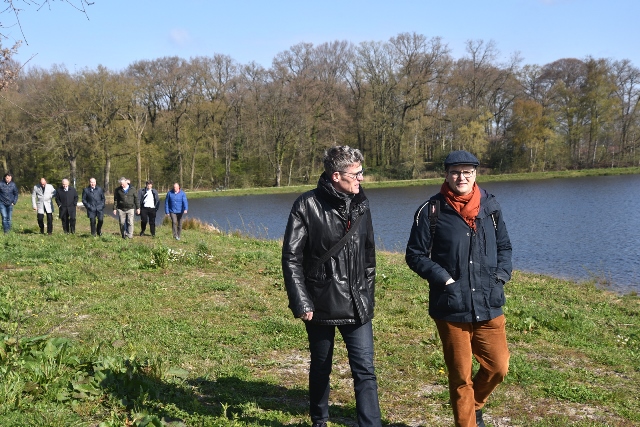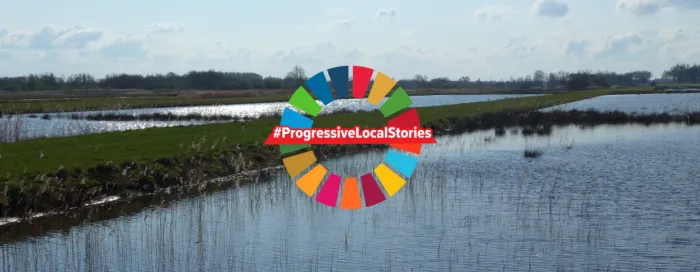On April 12, a delegation of members of the CoR Commission for the Environment, Climate change and Energy (ENVE) followed the invitation by PES ENVE Coordinator André van de Nadort to Weststellingwerf, the town of which he is mayor, in the Dutch province of Friesland. The invitation was to visit and experience first-hand two projects by the local authority in the areas of climate adaptation and waste reduction and recycling.

Dear Mayor, in what way would you say that Weststellingwerf by the projects which you have shown, can be a progressive town?
Obviously, climate change is real and to a certain extent imposes 'progress' on towns, cities and regions everywhere. All scientific data and even our own experience tell us that we will experience more extreme weather events and while trying to do everything we can to reduce greenhouse gas emissions, we also have to adapt our own infrastructure to cope with, in our case for instance, many more days of much heavier rainfall than what we were used to. But the question which we had to ask ourselves (not just in Weststellingwerf but all across the country) was: do we just build higher flood defenses, or can we do other, more intelligent things. This is why we have opted for an integrated project where we created new storage ponds for excess rain water including a hydro-plant facility to clean it, and combining this with creating additional natural overflow areas. This approach does not just solve the immediate problem what to do with too much water, but has allowed us also to improve biodiversity protection right next to our town center, creating new green recreation areas for the citizens to enjoy, and even integrating it with a historic park from the 19th century. That is what I call a progressive solution!
Inspiring @EU_CoR #ENVE study visit to the home town of our member André van de Nadort.
— PES Group Committee of the Regions (@PES_CoR) April 16, 2019
Weststellingwerf is setting a good example on how to reduce and recyclable waste in an innovative way! #SDGs #ProgressiveLocalStories pic.twitter.com/SrOvypBptV
How do projects which you have shown contribute to the implementation of the Sustainable Development Goals (SDGs) at local level?
The great advantage of the SDGs, which we still need to fully understand and realize at all levels, is the fact that they are all-encompassing. That means that we can and must address the social, ecological and economic challenges together to achieve 'sustainable development'. Clearly our rainwater management project is 'climate action', but it contributes to biodiversity, green healthy living and thus also to sustainable communities. Our inter-communal waste recycling plant, which separates household waste, extracts valuable raw materials for reuse and recycling and transforms organic waste into bio-gas for climate friendly combustion engines and heating, addresses another set of SDGs. They also take their educational role very seriously, organizing waste reduction and recycling competitions in primary schools and thus teaching future generations how to live responsibly and sustainably – which is what local action all over Europe should be all about! The SDGs provide a framework for all of us to work in, and the EU will be thinking hard about how to support local and regional authorities in their efforts. We hope our examples can be inspiration to others, and who knows, maybe we will also have the opportunity to use EU funds for future ideas.
